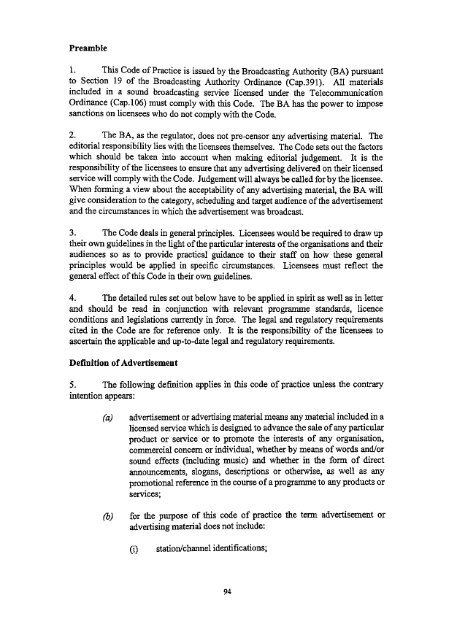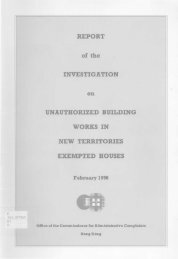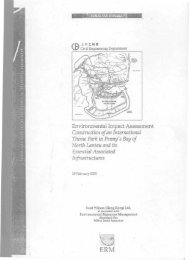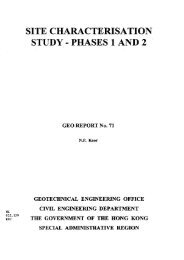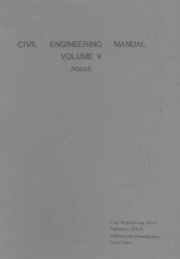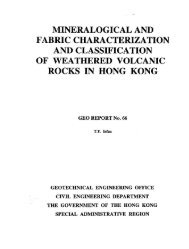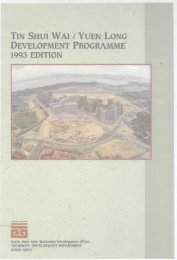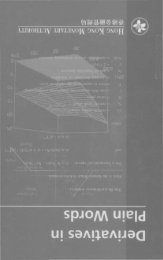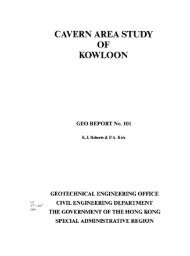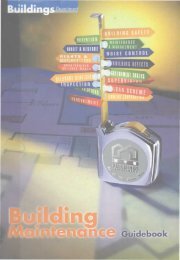(a) m - HKU Libraries - The University of Hong Kong
(a) m - HKU Libraries - The University of Hong Kong
(a) m - HKU Libraries - The University of Hong Kong
You also want an ePaper? Increase the reach of your titles
YUMPU automatically turns print PDFs into web optimized ePapers that Google loves.
Preamble<br />
1. This Code <strong>of</strong> Practice is issued by the Broadcasting Authority (BA) pursuant<br />
to Section 19 <strong>of</strong> the Broadcasting Authority Ordinance (Cap.391). All materials<br />
included in a sound broadcasting service licensed under the Telecommunication<br />
Ordinance (Cap. 106) must comply with this Code. <strong>The</strong> BA has the power to impose<br />
sanctions on licensees who do not comply with the Code.<br />
2. <strong>The</strong> BA, as the regulator, does not pre-censor any advertising material. <strong>The</strong><br />
editorial responsibility lies with the licensees themselves. <strong>The</strong> Code sets out the factors<br />
which should be taken into account when making editorial judgement. It is the<br />
responsibility <strong>of</strong> the licensees to ensure that any advertising delivered on their licensed<br />
service will comply with the Code. Judgement will always be called for by the licensee.<br />
When forming a view about the acceptability <strong>of</strong> any advertising material, the BA will<br />
give consideration to the category, scheduling and target audience <strong>of</strong> the advertisement<br />
and the circumstances in which the advertisement was broadcast.<br />
3. <strong>The</strong> Code deals in general principles. Licensees would be required to draw up<br />
their own guidelines in the light <strong>of</strong> the particular interests <strong>of</strong> the organisations and their<br />
audiences so as to provide practical guidance to their staff on how these general<br />
principles would be applied in specific circumstances. Licensees must reflect the<br />
general effect <strong>of</strong> this Code in their own guidelines.<br />
4. <strong>The</strong> detailed rules set out below have to be applied in spirit as well as in letter<br />
and should be read in conjunction with relevant programme standards, licence<br />
conditions and legislations currently in force. <strong>The</strong> legal and regulatory requirements<br />
cited in the Code are for reference only. It is the responsibility <strong>of</strong> the licensees to<br />
ascertain the applicable and up-to-date legal and regulatory requirements.<br />
Definition <strong>of</strong> Advertisement<br />
5. <strong>The</strong> following definition applies in this code <strong>of</strong> practice unless the contrary<br />
intention appears:<br />
(a)<br />
(b)<br />
advertisement or advertising material means any material included in a<br />
licensed service which is designed to advance the sale <strong>of</strong> any particular<br />
product or service or to promote the interests <strong>of</strong> any organisation,<br />
commercial concern or individual, whether by means <strong>of</strong> words and/or<br />
sound effects (including music) and whether in the form <strong>of</strong> direct<br />
announcements, slogans, descriptions or otherwise, as well as any<br />
promotional reference in the course <strong>of</strong> a programme to any products or<br />
services;<br />
for the purpose <strong>of</strong> this code <strong>of</strong> practice the term advertisement or<br />
advertising material does not include:<br />
(i)<br />
station/channel identifications;<br />
94


